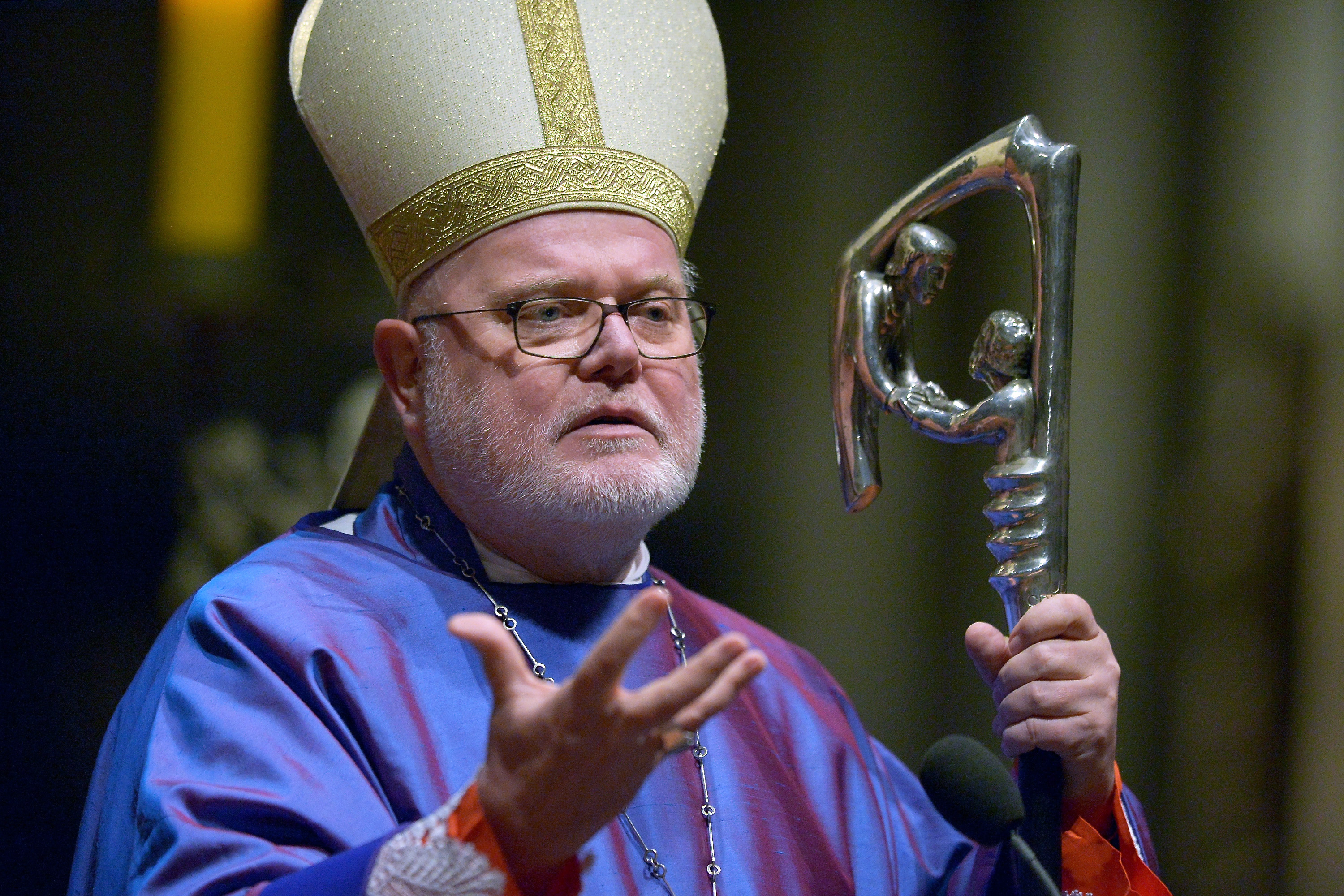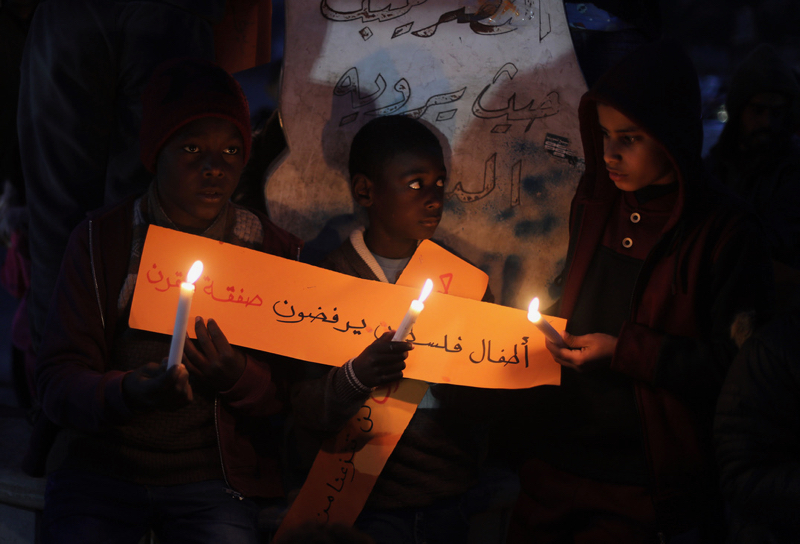As expected, the Palestinians have rejected US President Donald Trump's peace plan for the Middle East, released on Tuesday, but a number of important Arab states have urged Israel and Palestine to study the plan.
As world leaders gathered in Jerusalem at the Yad Vashem remembrance centre on Thursday last week, 23 January, and International Holocaust Memorial Day was marked on Monday 27 January, there were already signs that Middle Eastern diplomacy was pushing into a higher gear.
US Vice President Mike Pence, who attended the Yad Vashem event at which Prince Charles represented the United Kingdom, went on to meet Pope Francis in Rome on Friday 24 January. The audience in the private library lasted for an hour, and the only press release was a short one from Pence’s office saying the two men had discussed displaced religious minorities in the region.
The following day, Saturday 25 January, Francis met Iraqi President Barham Salih at the Vatican. A statement from the Vatican press office said that the talks included discussion of the reconstruction process in Iraq, and the importance of “the path of dialogue and the search for suitable solutions in favour of citizens and with respect for national sovereignty”.
The main international forces in Iraq are the United States and Iran. The targeted killing in Baghdad by the US on 3 January of General Qassem Soleimani, the leader al Quds Revolutionary Guard that is dedicated to the destruction of Israel and the capture of Jerusalem for Islam, has opened previously closed diplomatic pathways.
President Salih and Pope Francis also discussed the need to guarantee the safety of Christians in Iraq and to ensure they have a place in the country’s future. After the US-led invasion that toppled Saddam Hussein in 2003, the Christian population fell by more than 80 per cent, from 1.5 million to 250,000. Only recently have Christians begun to return, and a visit to the country this year by Pope Francis has not been ruled out.
Meanwhile there was before the announcement of the plan a discernible new emphasis on the rights of Palestinians to a Palestinian state. At a meeting in Cyprus on 21-22 January, Christian leaders of the Middle East Council of Churches urged greater support for churches in Palestine suffering “in light of the occupation, apartheid policy and isolation” and called for the recognition pf East Jerusalem as the capital of a future state. Delegates to the meeting came from Cyprus, Egypt, Lebanon, Iraq, Jordan and Palestine.
On Friday in Bethlehem Prince Charles told a gathering of civic leaders he was heartbroken to witness the “suffering” and “hardship” endured by the Palestinians. His unprecedented show of support – the most vocal ever publicly expressed by a member of the Royal Family – continued on a visit to the Casa Nova Franciscan pilgrim house near the Church of the Nativity.
“It is my dearest wish that the future will bring freedom, justice and equality to all Palestinians, enabling you to thrive and to prosper,” he said.
Later, after he held talks with the Palestinian Authority President Mahmoud Abbas, the official PA news agency WAFA reported that Abbas told Prince Charles he was grateful to the UK “for accepting the two-state solution and rejecting the US-led ‘deal of the century’.”
A sine qua non of the plan is security for Israel. Prime Minister Netanyahu, before travelling to Washington for the announcement of the deal, will have been reassured by the solidarity shown across the world around Holocaust Memorial Day. Prince Charles said that the stories of the Holocaust “are also our story: a story of incomprehensible inhumanity, from which all humanity must learn.” Europe’ Catholic bishops, in a joint statement by the Council of Catholic Episcopates of Europe and the Commission of European Bishops’ Conferences marked the day – this year commemorating 75 years since the liberation of the Auschwitz-Birkenau death camp – with an appeal against “racism, xenophobia and anti-semitism” and for “each nation’s right to exist in freedom and independence”. Cardinal Vincent Nichols of Westminster was a signatory.
It was on Sunday evening that Israeli Prime Minister Netanyahu and leader of Israel’s Blue and White Party Benny Gantz landed separately in Washington, D.C., ahead of meetings with President Trump and the unveiling of the peace plan followed their meetings.
When the plan for a “two-state solution” was unveiled at the White House on Tuesday, Mr Netanyahu was standing next to Mr Trump. Three Arab states were present at the unveiling: UAE, Bahrain and Oman.
The 181-page document contained maps showing how Israel and a future Palestinian state could look if Palestinians agreed to sign up to the plan.
They show a series of Palestinian cantons pockmarked with illegal Israeli settlements marked as “enclave communities”. More than 600,000 Jews live in about 140 settlements built since Israel’s 1967 occupation of the West Bank and East Jerusalem.
Observers quickly commented that the maps made Palestinian territory look far more coherent than it would be in reality.
Some Palestinian areas are linked by bridges and tunnels, the most prominent being one between the West Bank and Gaza Strip, while all routes between Palestinian communities are thin corridors. Jerusalem will “remain undivided west of the security barrier”, the document says, though areas of East Jerusalem could be the Palestinian capital, and Mr Trump said the US would be ready to open an embassy there.
In the Negev desert near the Egyptian border is a “high-tech manufacturing industrial zone” and a separate “residential and agricultural zone”, both of which appear to be Palestinian.
The status quo over the Al-Aqsa compound will be maintained, and “all Muslims who come in peace will be welcome to visit and pray at the al-Aqsa Mosque”.
Funding of $50bn would be available for the development of the Palestinian state.
Speaking after the announcement, Palestinian President Mahmoud Abbas said Jerusalem was "not for sale". “All our rights are not for sale and are not for bargain,” he said. Chief Palestinian negotiator Saeb Erekat said the Trump administration had simply "copied and pasted" the steps that Mr Netanyahu wanted to see implemented. "It's about annexation, it's about apartheid," he said. "Moving to the de jure annexation of settlements is something that was given the green light yesterday." The militant Palestinian Islamist group Hamas, which controls the Gaza Strip, rejected the deal which it said aimed "to liquidate the Palestinian national project".
Land allocated to Palestinians in Mr Trump's map more than doubles Palestinian territory, and that territory “will remain open and undeveloped for a period of four years". During that time, Palestinians would be able to study the deal, negotiate with Israel, and "achieve the criteria for statehood".
Egypt, the first Arab country to reach a peace deal with Israel, urged Israelis and Palestinians to study the plan carefully, and Saudi Arabia expressed support for a return to negotiations.
The United Arab Emirates called it “an important starting point”.
Jordan said the only path to peace was to establish an independent Palestinian state, based on pre-1967 boundaries, while Kuwait and Morocco on Wednesday both gave a positive response to Trump’s plan, though hedged their support on acceptance for the proposal by the Palestinians.
Kuwait “highly appreciates” the Trump proposal its foreign ministry said in a statement cited by the state news agency. Morocco, also a US ally, said in a statement from its foreign ministry it “appreciates” the US peace plan. Morocco hopes for “a constructive peace process” that will offer “a realistic, applicable, equitable and lasting solution,” the statement read.
The European Union said it needed to study the outline more closely.
Turkey's foreign ministry dismissed Mr Trump's proposals as an "annexation plan" aimed, it said, at killing a two-state solution and stealing Palestinian land for money.
Iranian Supreme Leader Ali Khamenei called the plan “satanic” and vowed that it would never be implemented. British Foreign Secretary Dominic Raab urged the Palestinians to give the plans "genuine and fair consideration and explore whether they might prove a first step on the road back to negotiations".



 Loading ...
Loading ...